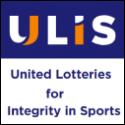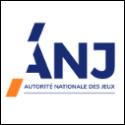Finance Committee Confirms Taxation of 15% on GGR in Sports Betting Regulation
Concerns raised over Brazilian sportsbook tax rate
BRAZIL (April 12, 2023) — A public hearing to discuss the regulation of sports betting in Brazil was held this Wednesday (12) morning. The meeting did not bring news, since the media in general and GMB, in particular, had already advanced issues such as sponsorship of clubs, taxation of operators and bettors and deadlines for the completion of the work. José Francisco Manssur, the special advisor to the Executive Secretariat of the Ministry of Finance, confirmed that the Provisional Measure (PM) being prepared by the government to regulate the sector will also establish a charge of R$ 30 million (US$ 6m) in grants for these companies to operate in the country.
The measure will also require that these companies have their headquarters in Brazil and respect a minimum capital requirement to receive accreditation. The text should be edited after the return of the Minister of Finance, Fernando Haddad, from China, next week. “The operator that is not accredited in Brazil as of the deadline set by the PM will be, when offering bets to the final consumer, practising an illegal activity,” he said, noting that non-accredited companies will be prohibited from advertising in Brazil.
The 15% tax will be levied on the “gross gaming revenue”, revenue obtained from all games made, subtracting the prizes paid to players. The percentage is the same as that practised in the United Kingdom, which has a mature market and a high rate of formalization, said Manssur. For every R$ 100 (US$ 20) wagered, bookmakers usually distribute around R$ 87 (US$ 17.5) in prizes. The GGR is charged on the remaining R$ 13 (US$ 2.6), which makes up the net revenue from bets.
According to him, the government will also maintain the charges defined by law by Congress in 2018, but which have not yet been put into practice. There will be a transfer of 0.82% of net revenue to education programs and 2.55% to the National Public Security Fund. A slice of 1.63% will be disbursed in return to clubs and athletes that assign brand and name rights to these platforms. They will also incur on the activity of these companies Corporate Income Tax, Pis/Cofins and social contribution.
For bettors, the charge on prizes is 30% of Income Tax, excluding the amount corresponding to the current exemption range in the tax. According to the special advisor, this rule should allow more than 70% of sports betting winnings to be exempt.
Manssur pointed out that the government will also work to monitor fraud and manipulation of results, in addition to promoting initiatives to value responsible gambling and combat addiction. “We want to collect, but we also want to monitor, avoid negative externalities, which are happening today and the government does not have the tools to avoid,” he said.
Manssur stated at the beginning of his presentation that “since the period of government transition, the need for regulation was detected and we were tasked with studying the subject and we came to the conclusion that a Provisional Measure would be the most appropriate model for the proposal for a regulation, and this is happening to involve Parliament in the discussions.”
For him, “With the approval, the PM will give power to the Ministry of Finance to issue specific ordinances, including one on the tax rate. Operators have always been open to contributing and have even brought practices adopted for responsible gaming and mechanisms to combat match-fixing, as bookmakers are also victims of the practice,” he recalled.
15% GGR and operation of accredited sites only
In addition, Manssur made it clear that the agency’s objective is to bring all operators to the regulated market, following the example of what happened in the United Kingdom. “We looked for best practices and found that the ideal taxation model is the United Kingdom, where it is 15% on the GGR, which guaranteed the permanence of 87% of the players operating in that market.”
Once again, the executive of the Finance Ministry made it clear that those who are not accredited after the approval of the MP will not be able to sponsor teams or make any kind of publicity. “Only operators that are accredited upon payment of a grant, minimum share capital and proof of being established in Brazil will be legal,” he stated.
In addition, he said that the Provisional Measure will regulate sports betting and that casino games will not be allowed, leaving the National Congress to finish discussions on the legalization of other verticals.
Bettor safety and combating illegal gambling
In his statement, Wesley Cardia, CEO of the ANJL, highlighted that the entity “combats illegal gambling. It is important to regulate so that clandestine gambling is extirpated from the market. In addition, we strive for responsible gaming and fight against match-fixing,” he said.
According to him, “Portugal and France made a mistake in defining the taxation and many operators are in the gray market, while the United Kingdom, with an adequate rate, brought practically all operators to the legal market.”
André Gelfi, president of the Brazilian Institute of Responsible Gaming, made a quick presentation of the entity and commented that “it is important for the market to be regulated to offer security to gamblers and the certainty that they are on a reliable website regulated by the government.”
Márcio Malta, CEO of Sorte Online, defended the regulation and highlighted that even though the company does not work with sports betting, as a lottery betting intermediary it has already distributed more than R$ 210 million (US$ 41.5m) and contributed more than R$ 220 million (US$ 43.7m) in taxes to the government. “For this reason, we understand that sports betting should also be regulated to generate more value for the State immediately.”
Lawyer Roberto Brasil Fernandes recalled at the meeting that “sports betting is a lottery modality provided for by law. There are many reasons for regulation, including economic, social, public health and safety, which is the soul and what distinguishes lottery from gambling, as the activity is a strong contributor to these areas.”
He was blunt in defending the regulation of Law 13.756/18: “Do not miss the opportunity to do this for direct benefits to society. Each month that we fail to regulate, we lose from R$ 500 million (US$ 100m) to R$ 1 billion (US$ 200m) a month.”
Ricardo Santos, representing sports bettors, said he defended more than 10 million bettors, “who are irritated with the way the regulation has been conducted. All the money in the industry is in our hands, as bettors are the ones who put money in the industry. If you tax them on the winning bet, it will be a shot in the foot and bettors will go to the offshore market. We want regulation and we are available to talk about it. And taxation should be on the profit and not on the winning bet.”
Lotteries want to participate
Ademar Benvindo, a representative of Febralot, highlighted that the entity represents 13,500 companies, present in more than 5,000 Brazilian municipalities. “It is a representative segment, and last year we sold R$ 22.5 billion (US$ 4.5b) in lotteries alone, of which 48% were passed on to the Treasury, which provides resources for social investment. People play at lottery retailers; we need to have our physical stores and online is there and we want to be included in this context.”
Giovani Rocco, from the Association for the Defense of Gaming and Betting, defended the protection of small operators and Brazilian businessmen, “so that they are included in the process, otherwise the expected revenue will not materialize.”
When responding to the various questions, especially from deputies present at the hearing, Manssur made it clear that “we will not innovate in what was defined in Law 13756 and the 30% tax on betting profits will be maintained,” reinforcing that only companies that meet all requirements will be able to work.
“To ensure legal operation, companies will have to be installed in Brazil and have paid the grant fee. They will not be able to advertise or sponsor and not comply with all the determinations to be defined by the Provisional Measure and by the ordinances that will come,” he sentenced.
More structure
Manssur also said that the current structure of the Ministry of Finance can only work on the PM and that the body is seeking an increase in structure. “We want to create a robust structure to face what will come after the approval of the Provisional Measure.”
He also reinforced that all systems to be implemented will certify payment methods through the Central Bank, as well as address the issue of match-fixing and implementation of responsible gaming policies.
Manssur took the opportunity to confirm the implementation of Lotex, and that Caixa will participate, leaving marketing to the disabled, “as we see in other jurisdictions, with emphasis on Spain.”
The urgency of regulating sports betting, according to him, does not come only from the Ministry of Finance and operators. “The Federal Court of Auditors and the Public Prosecutor’s Office are urgently asking us to regulate due to the non-receipt of taxes from the activity.”
SOURCE: GMB
Tags: sports betting, Brazil, Taxation




























